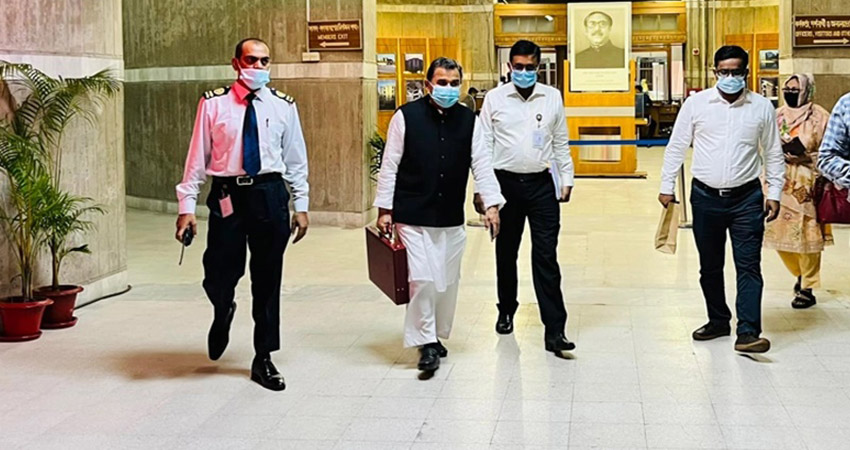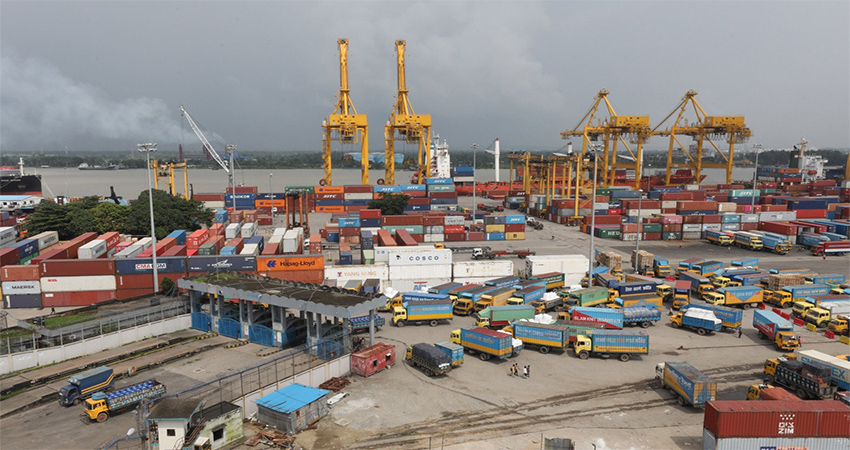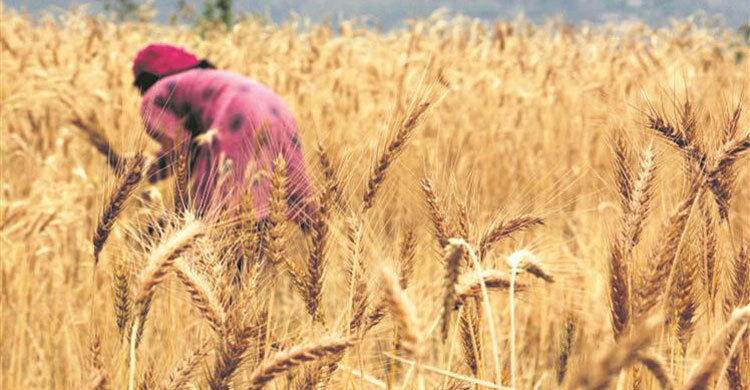An expansionary budget is going to be announced today for the next fiscal year keeping in mind the continuation of the Covid-19 recovery process and addressing the new challenges stemming from the Ukraine war.
Finance Minister AHM Mustafa Kamal reached parliament to place a hefty Tk 6,780.64 billion budget for 2022-23 fiscal year, which is Tk 743.83 billion or 12.32 percent higher than Tk 6,036.81 original budget for the outgoing fiscal year.
The government thinks that the expansionary spending plan is required to implement the stimulus packages announced for corona recovery.
Public expenditure will be increased in every term next fiscal as the Ukraine war has made global energy and food prices unstable, according to finance ministry officials.
The mounting inflationary pressure caused by the increased energy and food price is going to be addressed with more subsidies and a wide social safety net. The inflation target is set at 5.5 percent.
At the same time, there will be attempts in the budget to appease the voters as it is going to be a full-fledged budget of the Awami League government before the next general elections.
On several occasions, the finance minister has assured that people of all tiers and all types of industries will get something in the budget and nobody will be disappointed although he admitted the pressure created by the ongoing war.
The government is setting aside the lion’s share of the planned expenditure --Tk 4,114.06 billion -- as operational cost, including Tk 731.75 billion loan interest payments, while 38.28 percent or Tk 2596.17 billion is being allocated as development expenditure, including Tk 2,460.66 billion main Annual Development Programme (ADP).
For meeting the increased cost, the government eyes to borrow one-third money of the planned expenditure from local and foreign sources while trying to increase domestic revenues as well. However, the budget deficit will be 5.5 percent of GDP. The revenue collection target is being raised to Tk 4,330 billion, including Tk 3,700 billion NBR tax, Tk 180 billion non-NBR tax, and non-tax revenue Tk 450 billion non-tax revenue.
The government hopes to earn a large amount of non-tax revenue from the Padma Bridge and Dhaka-Mawa expressway in the next fiscal year. There is also an expectation for Tk 32.71 billion foreign grants. People won’t be burdened with new taxes, rather more taxes will be collected by exploring new areas and expanding the tax net as a tool for more tax collection, sources at the National Board of Revenue (NBR) said.
The budget deficit is going to be a whopping Tk 2450.64 billion or 36.14 percent, which is being planned to be met mainly through bank borrowing which is going to be Tk 1,063.34 billion.
Overseas borrowing will also have a big role to play. The net foreign borrowing target is being set at Tk 954.58 billion which is Tk 184.38 billion higher than current fiscal’s revised target. Non-bank borrowing target will be Tk 400 billion, including Tk 350 billion from savings certificate sale.
The government will put more subsidies on the imported goods as the imported items are the main source of inflation in the country at this moment. As a result, subsidies may rise on fertiliser, food items, electricity, subsidy and incentive segment is fetching nearly Tk 830 billion.
With the increased development expenditure plan, there is an intention for keeping development activities on track during the post-pandemic period. Besides ADP, Tk 77.21 billion will be spent on non-ADP projects and Tk 26.75 billion on Food for Work Programme to maintain economic momentum.
“There will be no cut in next fiscal’s ADP for employment generation and increasing investment. No ban will be put on ADP expenditure for sake of austerity as jobs won’t be created and people’s income won’t increase if ADP doesn’t grow,” a finance ministry high official said.
The government put a bar during the pandemic to save 25 percent of ADP money in a bid to shift the money to health emergencies.
More emphasis is being given to investment to create more jobs next year as the government’s tenure is ending and is going to face national polls.
The investment target will be 31.5 percent of GDP, including 24.9 percent from the private sector and 6.6 percent from public investment.
Banking on a 7.25 percent growth projection for the current fiscal year, next fiscal’s growth target is being set higher at 7.5 percent propelled by the revival of economic activities after the pandemic.
There will be good news for the exporters as corporate tax for all the export sectors may be curtailed to only 12 percent from existing 22.5 to 30 percent.
Currently, the apparel sector enjoys the rate while green factories pay only 10 percent corporate tax, this rate will remain unchanged.
However, the transport sector, telecommunication and internet and internet-based export-oriented industries won’t get the benefit of a corporate tax cut. NBR may curtail source tax for the internet service providers.



















